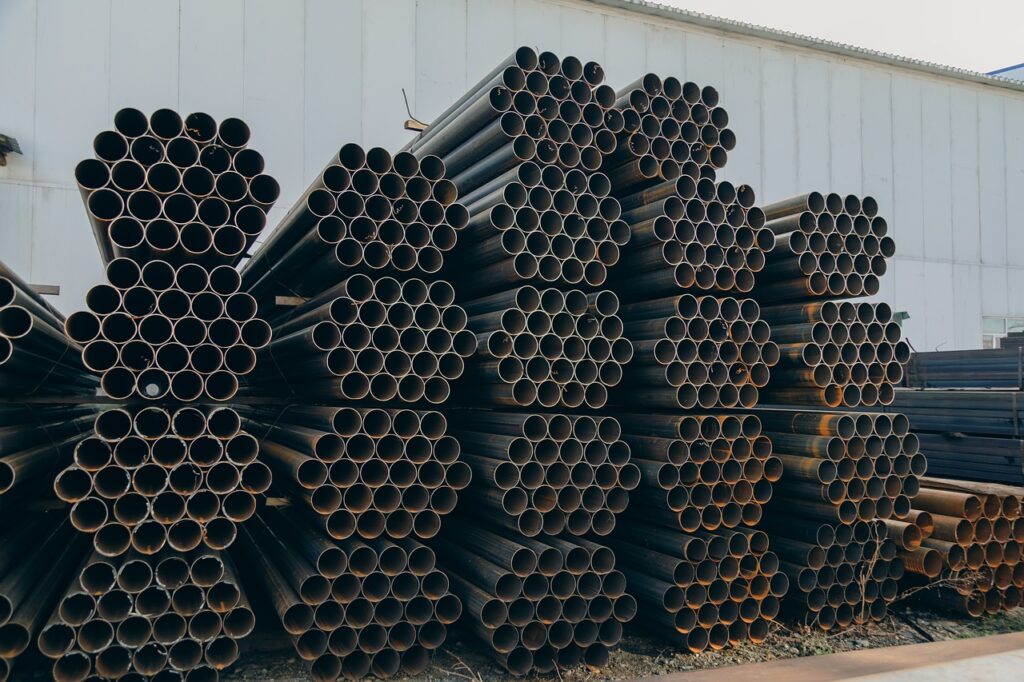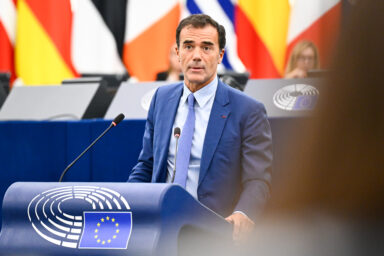The EP International Trade Committee summarily supports the European Commission‘s drive to relax the Carbon Border Adjustment Mechanism—somewhat. On Wednesday, it rejected further weakening of the flagship Green Deal regulation.
Members of the INTA committee voted at Wednesday’s extraordinary meeting on the opinion to the ENVI committee on the CBAM simplification proposal. In two separate votes, they voiced their approval for the Commission text as-is, dismissing calls for further dilution of the original regulation.
No more tweaking
INTA had to convene the extraordinary session to meet deadline for the adoption of the report set by ENVI, the lead committee on the matter. The vote followed a presentation of the proposal held during the INTA meeting on 7 April. MEP Karin Karlsbro (Renew/SWE) assumed the role of rapporteur for the opinion.
The Commission proposed to relax the CBAM regulation, along with other parts of its flagship Green Deal project, on the back of sharp criticism from various stakeholders. The move is part of the Commission’s Omnibus package revealed in late February, designed to rid the EU business environment of much-reviled red tape.
Significant changes
The proposal includes significant changes to the CBAM regulation, aiming to make it easier for authorities to administer, and for importers to comply. The changes include the following:
– introducing a tonnage threshold that would exclude smaller importers from the scope of the regulation, which is expected to remove approximately 90 per cent of participants from scope
You might be interested
– simplification of the reporting requirements and calculations, including delaying the deadline for submitting CBAM declarations to 31 August for the previous calendar year
– calculation of embedded emissions to be limited to the same system boundaries as the ETS
– minor changes to the product scope
– delay of the the requirement to purchase CBAM certificates until 2027, as opposed to 2026 (as originally planned).

In other words, the Commission wants to exempt small importers from CBAM obligations if they import less than 50 tonnes of goods annually. This would ensure that 99 per cent of embedded emissions from targeted sectors (steel, aluminium, cement, fertilisers) are still taxed. Some lawmakers have argued, however, that the 50-tonne threshold is too low, burdening small businesses with paperwork. Others fear weakening CBAM’s environmental impact.
Five minutes
The INTA received eight amendments proposed mostly by right-wing members, all of them calling for further tweaking of the thresholds (tonnes exempted) and emission coverage (percentage of emissions still taxed).
On Wednesday, the extraordinary meeting took all of five minutes. Chaired by Bernd Lange (EPP/GE), it featured the votes as the only point of substance. Mr Lange, tieless and apparently in good spirits, said: „Let’s do it quickly, so we can demonstrate that the EU Parliament is one of the most efficient institutions of the EU.“ Then he proceeded to the actual voting; the amendments were soundly rejected.
In standard EU procedure, the rapporteur drafts an opinion reflecting the committee’s stance. If no draft opinion exists, the committee is essentially working directly from the Commission’s original proposal. Rejecting amendments in this scenario means that INTA endorses the Commission’s text as-is. As the lead committee, ENVI can still amend the proposal but will note INTA’s endorsement of the original text.











